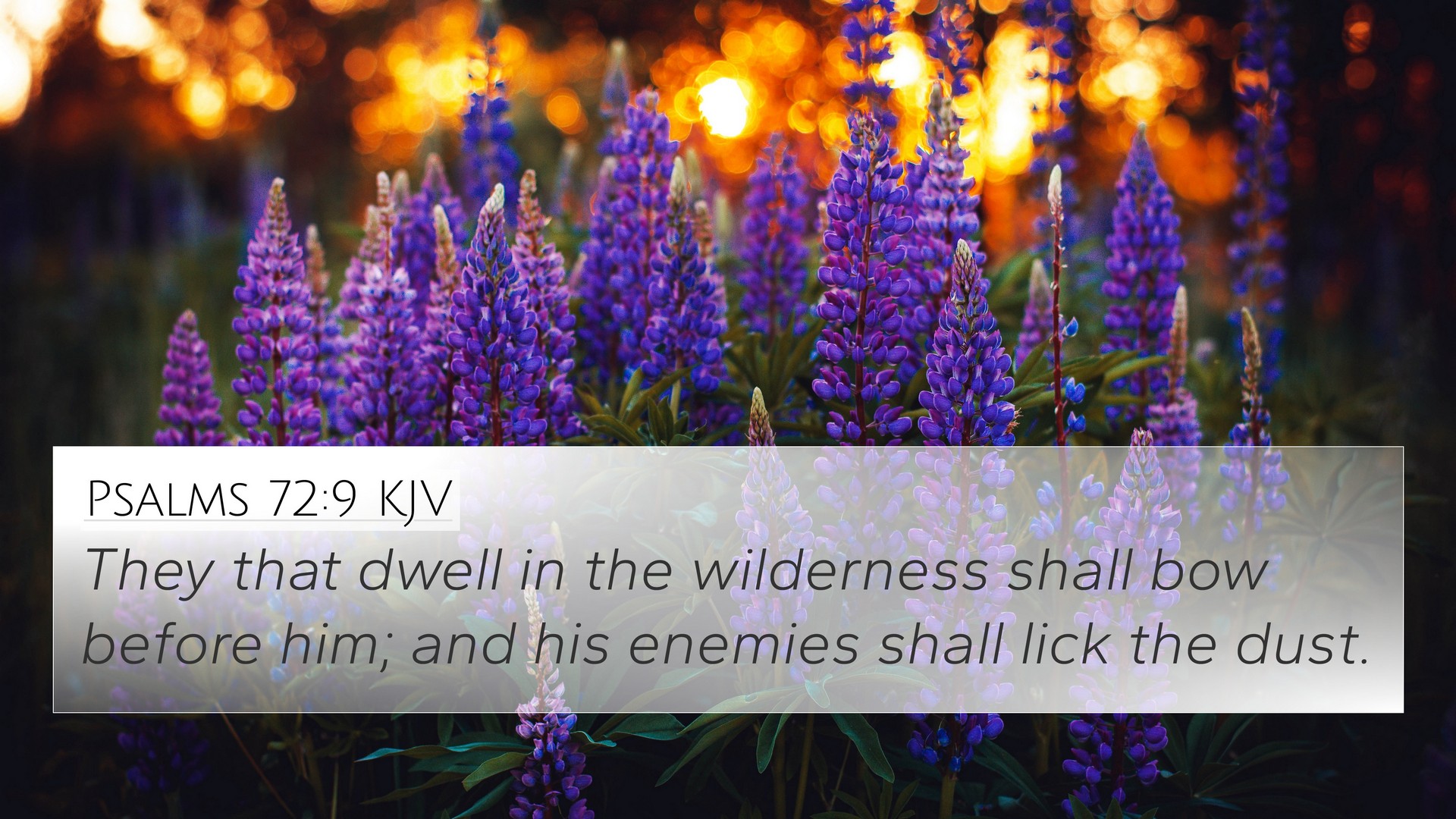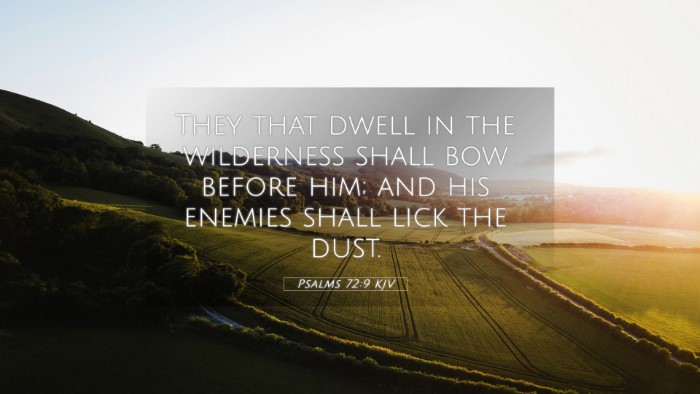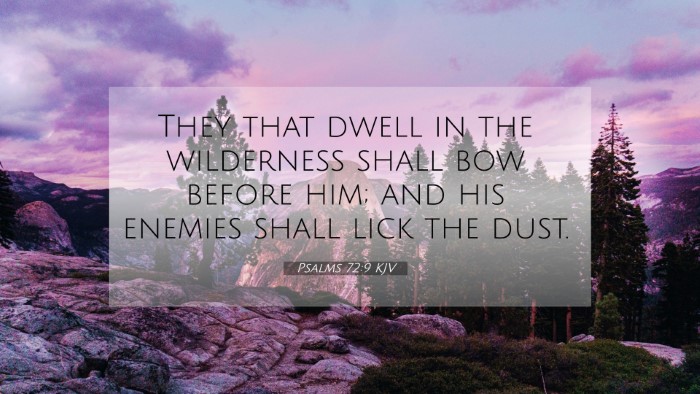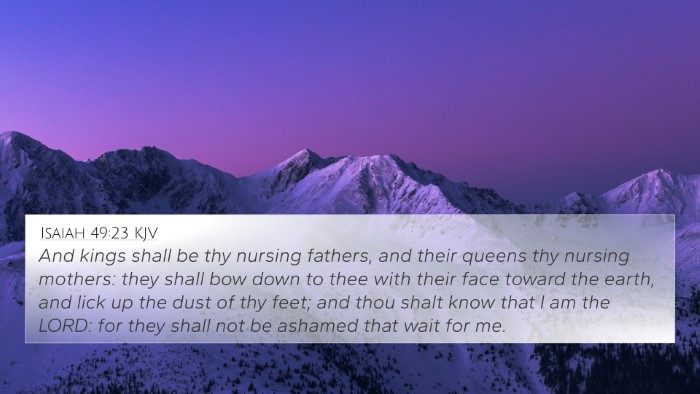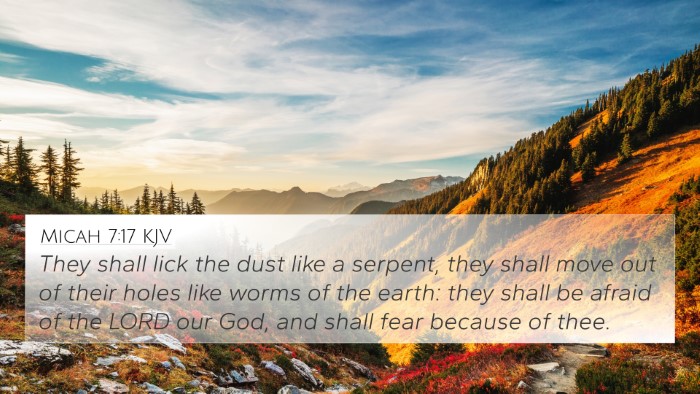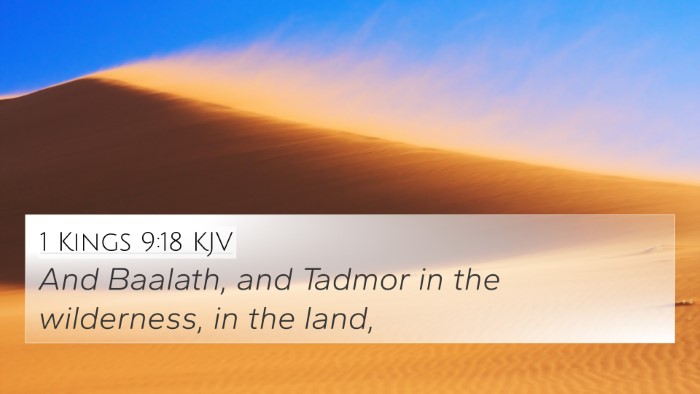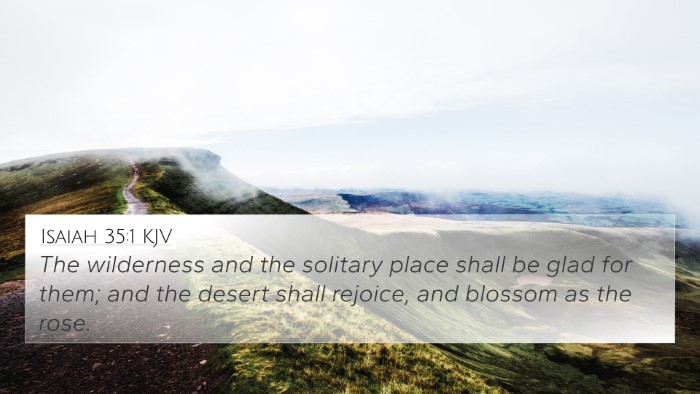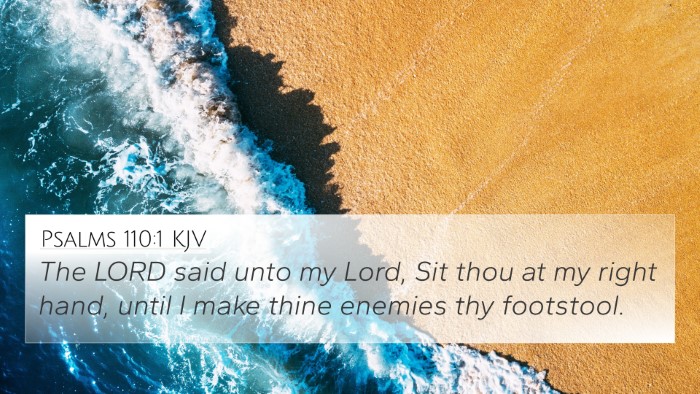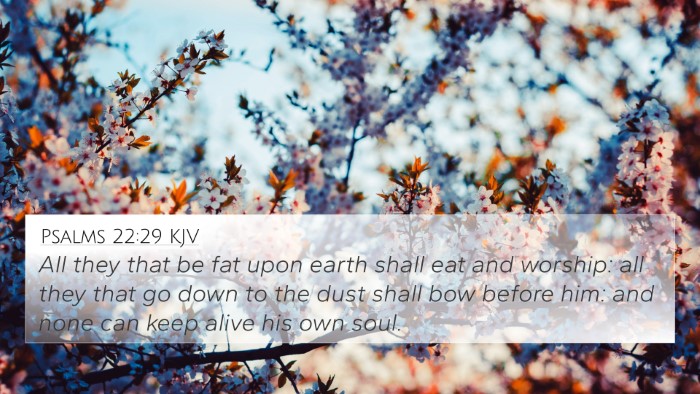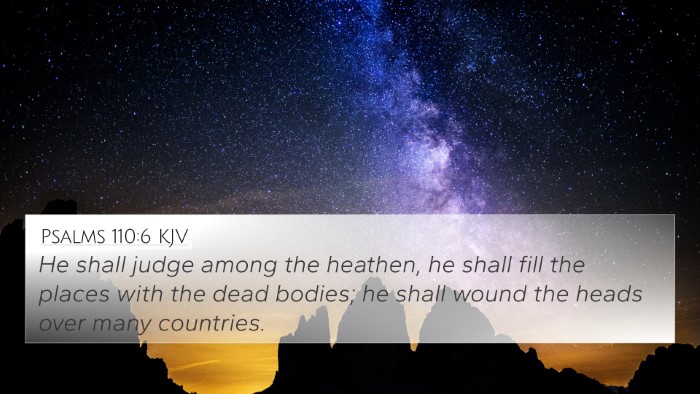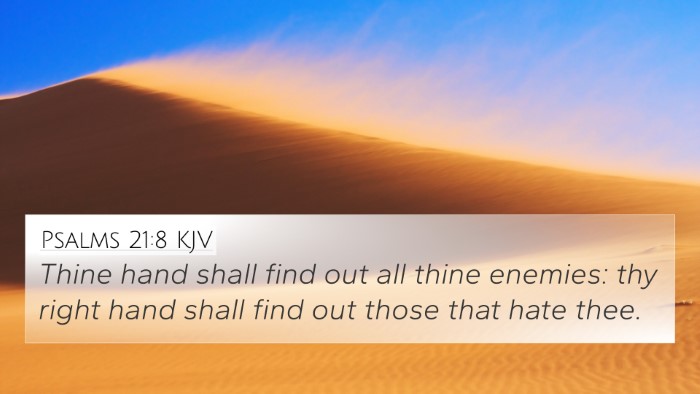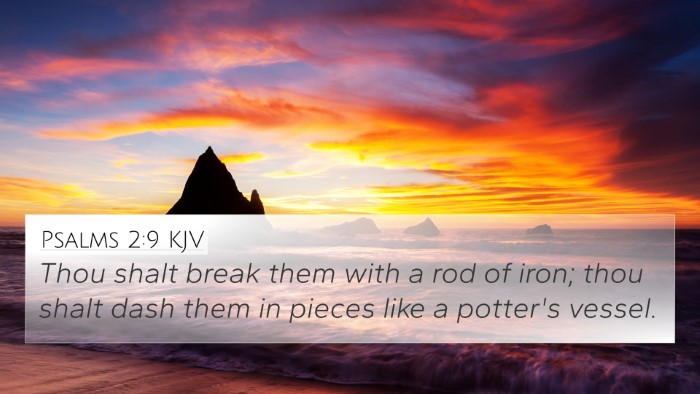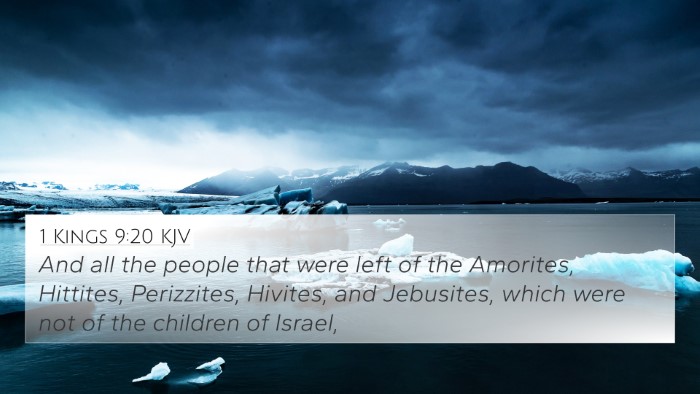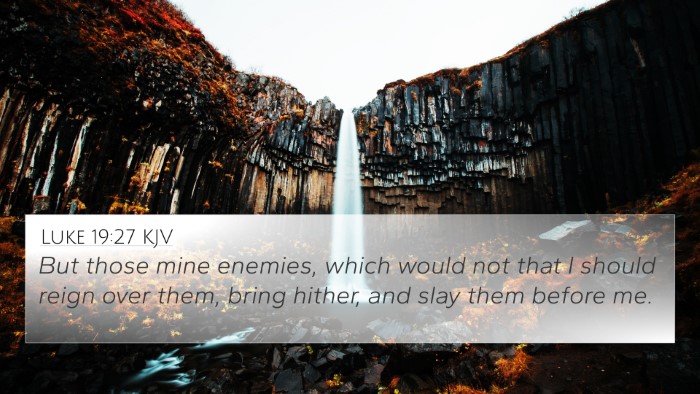Psalms 72:9 - Understanding the Verse
Verse: "They that dwell in the wilderness shall bow before him; and his enemies shall lick the dust."
Overview
Psalms 72:9 speaks about the universal reign of the king, expressing the power of authority, subservience of enemies, and reverence from those inhabiting the wilderness. This poses a prophetic image of a kingdom where all creation acknowledges the sovereignty of God.
Interpretation from Commentaries
Matthew Henry's Commentary
Matthew Henry emphasizes the spiritual significance of “those who dwell in the wilderness” as representing a group often overlooked, yet chosen to recognize the Lord's authority. This acknowledgment manifests through worship and submission, showcasing that God’s reign is acknowledged even by those living on the fringes of society.
Albert Barnes' Notes
Albert Barnes explains that "enemies licking the dust" is a metaphor that indicates utter defeat and humiliation. It reflects the total submission of God's adversaries under His authority. He correlates this imagery to other scriptural instances where humility before God is portrayed as a sign of reverence.
Adam Clarke's Commentary
Adam Clarke interprets the verse as a prophecy relating to the reign of the Messiah. He connects it to the broader fulfillment of God’s promises, suggesting that all nations, including those in desolation and wilderness, will come to honor Him. This prophetic verse illustrates a divine hope for restoration and acknowledgment of God’s glory worldwide.
Cross-References
This verse relates to the following important Bible verses:
- Isaiah 60:14: "The sons of those who afflicted you shall come bending low to you." - This verse indicates the submission of former enemies to God's chosen people.
- Philippians 2:10: "That at the name of Jesus every knee should bow." - Highlights the universal acknowledgment of Christ’s dominion.
- Psalm 72:8: "He shall have dominion also from sea to sea..." - This provides context to the reign described in verse 9.
- Micah 7:17: "They shall lick the dust like a serpent." - A direct comparison concerning the fate of God's enemies.
- Romans 14:11: "For it is written, As I live, saith the Lord, every knee shall bow to me..." - Echoes the theme of universal submission.
- Joshua 6:24: "And they burned the city with fire, and all that was therein..." - This relates to God's power over and destruction of the unrepentant.
- Revelation 3:9: "And will make them to come and worship before your feet..." - The future acknowledgment of the faithful by the nations.
Thematic Connections
This verse reflects thematic links throughout the Bible, illustrating God’s sovereignty and the eventual recognition of His power across different contexts and narratives.
1. God’s Sovereignty and Authority
The concept of God's dominion is a recurring theme, as seen in verses that emphasize the ultimate authority of God over nations and peoples. Cross-referencing Biblical texts underlines that God's power is acknowledged by all facets of creation.
2. Humility and Submission
Both the wilderness dwellers and enemies are depicted as bowing and licking dust, symbolic of humility and submission. This mirrors the Biblical teachings on humility before God.
Tools for Bible Cross-Referencing
To better understand and analyze the connections between Bible verses, the following tools can be utilized:
- Bible Concordance: A comprehensive tool for finding words and verses.
- Bible Cross-Reference Guide: Guides that offer thematic connections.
- Cross-Referencing Bible Study Methods: Techniques for in-depth study across scriptures.
- Comprehensive Bible Cross-Reference Materials: Resources that provide detailed cross-referencing.
Conclusion
Psalms 72:9 illustrates the profound acknowledgement of God’s authority, anticipated by both humble wilderness dwellers and defeated enemies. The cross-references deepen our understanding, showing that this theme resonates throughout scripture, providing insight into God's eventual judgment and mercy.
